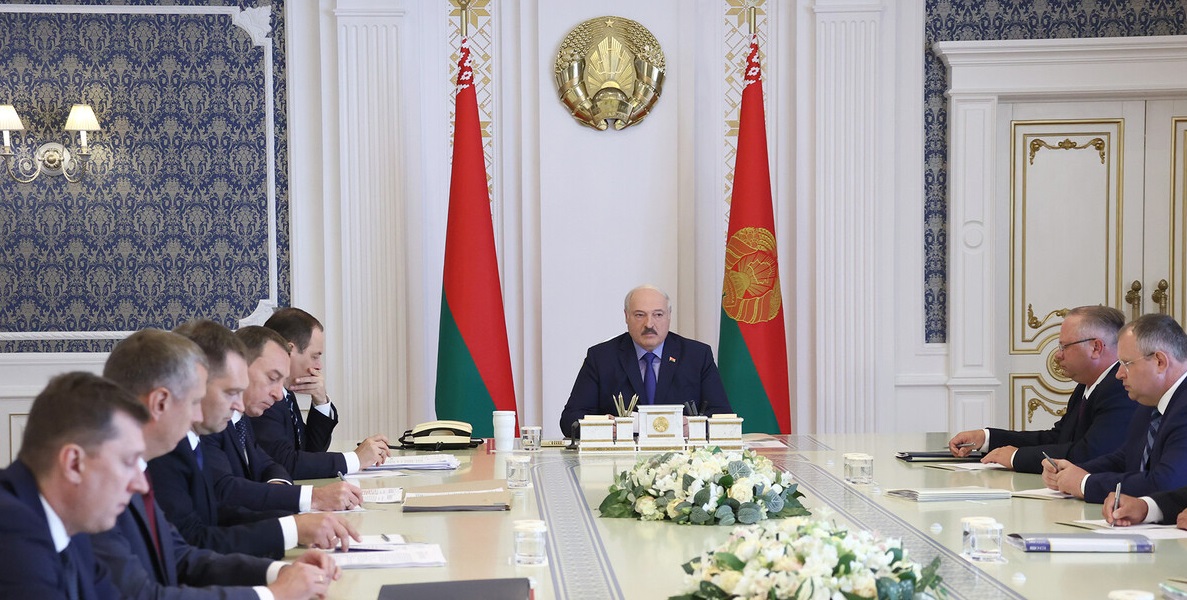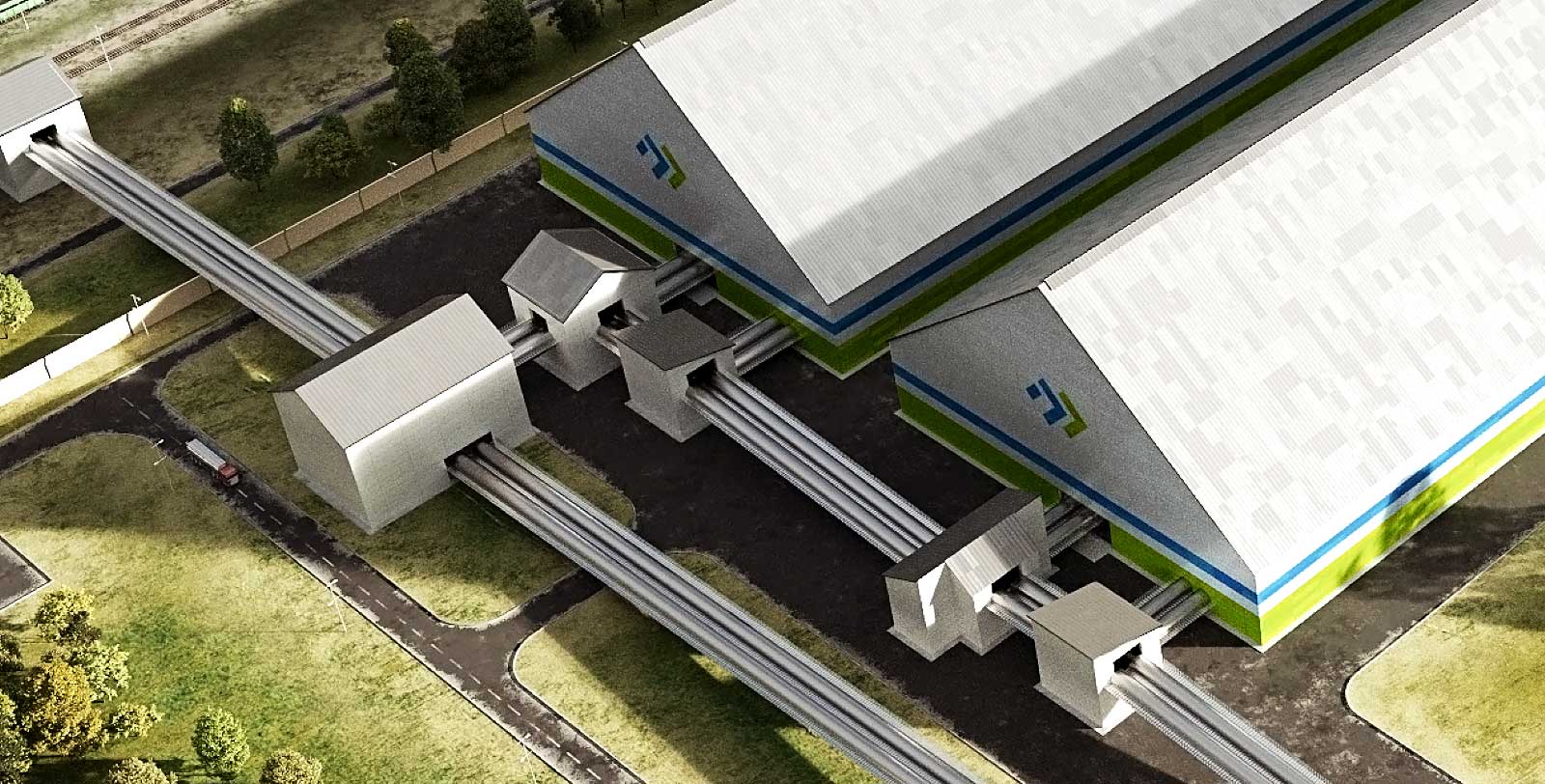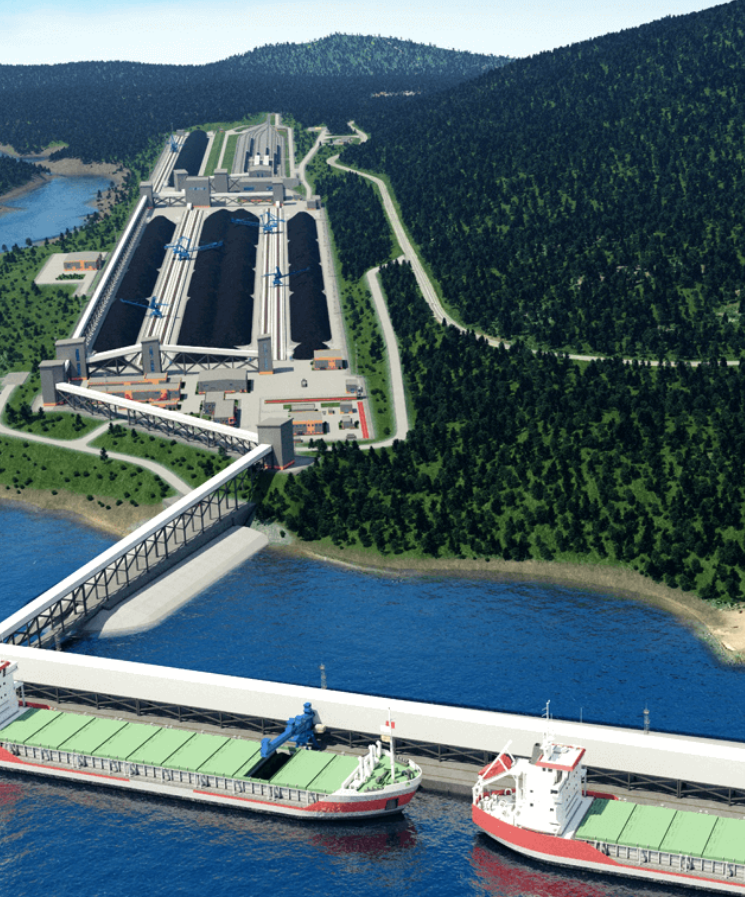
Belarusian President Aleksandr Lukashenko returned to the issues of handling Belarus’ cargo in Russian ports. According to him, the most acute one is handling of potash. A dedicated terminal can be built in Primorsk or Murmansk. What is the real situation with transshipment of Belorussian cargoes?
| In brief: Belorussian oil products are being successfully handled via the terminals of Saint-Petersburg and Ust-Luga while the prospects of potash terminal in Primorsk have certain disadvantages. Meanwhile, there is a possibility of entering the project on comprehensive development of Murmansk Transportation Hub. |
When speaking at the meeting on 18 July 2023, Belarusian President Aleksandr Lukashenko emphasized the necessity “to finally decide” what exactly needs to be done to transship Belarusian cargo via Russian ports. According to him, Belarus is either to build its own terminal or to upgrade one of the existing ports.
“We were forced to leave traditional ports and now we use all ports of the Russian Federation to transship our cargo, which is about 20 million tonnes,” the president noted. “Are there any appreciable results in this direction?” he continued. “Which ports are used to transship potash fertilizers and oil products, what are the problems in this regard? Do we have an understanding of how much potassium we can transship through the ports of the Russian Federation on acceptable terms?” the president asked.

As for oil products, in 2021, Russia and Belarus entered into an intergovernmental agreement on cooperation in transportation and transshipment of oil products bound for exports to third countries from Belarus via the seaports of Russia. The document provides for handling over 9.8 million tonnes of oil products in Russia’s Baltic ports. The agreement is signed for three years and can be extended automatically. Oil products produced by Belorussian refineries are to be delivered to Russian ports by railway transport.
A source familiar with the agreement implementation told IAA PortNews that Belarus’ oil products continue flowing via Saint-Petersburg and Ust-Luga terminals.
As RF Minister of Transport Vitaly Savelyev said at the session of the Parliamentary Assembly of the Union of Belarus and Russia, the transit volume of Belarusian petroleum products for export to third parties through Russian ports is expected to reach 6.5 mln metric tons in 2023. "Petroleum products planned for carriage and throughput in 2023 amount to almost 6.5 mln metric tons under the agreement. In 2022, we set the task to carry about 2.5 mln metric tons by rail to Russian ports while in actuality, 3.7 mln metric tons were carried," the minister was cited by the media.
The situation with handling of potash fertilizers is more challenging: Russia lacks specialized facilities to handle the volumes declared by Belarus (about 11 million tonnes per year).
According to the Ministry of Transport, about 8.4 million tonnes of Belorussian potash is to be transshipped via Russian ports this year.
As of today, the Belarusian potash was "scattered" in small batches among ports of various basins of Russia. In particular, it was handled at multipurpose terminal Port Bronka in St. Petersburg. IAA PortNews’ source in the industry says that handling of Belorussian potash via Bronka will total 1 million tonnes by the end of 2023. However, handling of potash in big-bags at non-dedicated terminals is a temporary solution unable to replace a deep-water specialized terminal.

As we mentioned previously, it would be logical for Belarus to enter a project of Primorsky UPK (Primorsk) or Port Lavna (Murmansk). At the recent meeting, Aleksandr Lukashenko indirectly confirmed our predictions having mentioned these two ports as the most promising ones for the development of infrastructure intended for fertilizers.
“It is necessary to finally decide what exactly needs to be done to create port capacities to transship Belarusian cargo – to build a terminal, a port or to upgrade an existing port - and immediately get down to work,” the head of state emphasized. “As far as I know, we are building and upgrading capacities somewhere near Leningrad. At the same time, we have made little headway near Murmansk,” he added.
What exactly is being built “somewhere near Leningrad” is actually unknown. We have found no confirmation of the potash terminal construction by Belarus. We can only assume that the President could have in mind some works in Bronka. At the same time, the earlier mentioned Primorsky UPK project initially provided for the construction of a terminal capable of handling 5 million tonnes of mineral fertilizers per year. However, Primorsk has some disadvantages as it is considered to be a resort area and large-scale port construction here entails protests from environmentalists and the public.
If we talk about Murmansk, the Port Lavna project is already at a high level of implementation. It is aimed at annual transshipment of 18 million tonnes of coal. Given that the work is being carried out as part of the Comprehensive Plan for the Development of the Murmansk Transport Hub including the construction of a railway to the left bank of the Kola Bay, the construction of a specialized potash terminal in this area can be considered. Murmansk ensures close entry to the Northern Sea Route where year-round navigation is to begin next year. That gives additional arguments in favor of the Murmansk option, because China is one of the key consumers of Belarusian potash.
Anyway, it will take several years to build a specialized deep-water terminal from scratch.
More industry-related content is available on our social media pages: YouTube, Telegram, Yandex Zen



